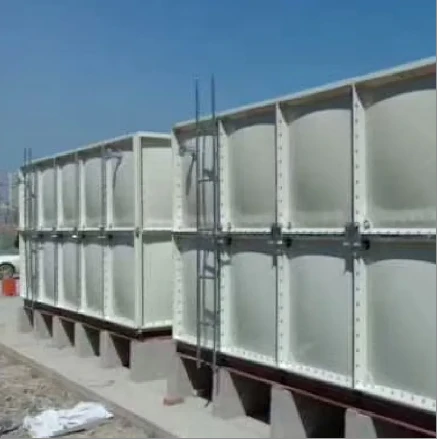loading...
- No. 9, Xingyuan South Street, Dongwaihuan Road, Zaoqiang County, Hengshui, Hebei, China
- admin@zjcomposites.com
- +86 15097380338
- Welcome to visit our website!
industrial water filter system
Industrial Water Filter System Ensuring Purity in the Production Line
Water is heralded as one of the most fundamental resources for industrial operations across various sectors. From manufacturing to food processing, the quality of water used directly affects product quality, operational efficiency, and environmental compliance. This makes the implementation of an industrial water filter system not just beneficial, but essential.
An industrial water filter system serves the critical purpose of removing contaminants and impurities from the water before it enters production processes. These contaminants can include sediments, chemicals, heavy metals, bacteria, and other harmful particles that can compromise both the product's safety and the machinery's efficiency. With increasing environmental regulations and consumer scrutiny regarding product safety, industries must prioritize water purification.
Types of Water Filtration Technologies
1. Sediment Filters These are the first line of defense in any water filtration system. Sediment filters are designed to remove larger particles such as sand, silt, and rust that can damage machinery and clog pipes. Typically, these filters use a porous material and can be cleaned or replaced periodically.
2. Carbon Filters Utilized primarily for their ability to absorb chemicals, chlorine, and unpleasant odors, carbon filters enhance the taste and smell of water. They are particularly important in industries like food and beverage, where water quality directly impacts product flavor and quality.
3. Reverse Osmosis (RO) RO systems are one of the most effective methods for producing highly purified water. By forcing water through a semipermeable membrane, reverse osmosis removes a vast majority of contaminants, including many dissolved minerals. This filtration method is crucial in industries that require ultra-pure water, such as pharmaceuticals and electronics manufacturing.
4. Ultraviolet (UV) Light Systems UV systems excel in disinfection. They use ultraviolet light to kill bacteria, viruses, and other pathogens in the water without the need for harmful chemicals. This method is increasingly favored in sectors that require safe, clean water, particularly in the food industry.
5. Ion Exchange Systems These systems are primarily used for water softening and demineralization. By exchanging harmful ions in the water with benign ones, ion exchange systems help prevent scale buildup in pipes and machinery, enhancing operational longevity.
industrial water filter system

Benefits of Industrial Water Filter Systems
Operational Efficiency Pure water leads to machinery that operates smoothly and efficiently. Contaminated water can cause corrosion, clogging, and other operational issues that lead to costly downtimes and repairs.
Product Quality Ensuring high water quality directly correlates with the quality of the final product. For many industries, even minute impurities can lead to compromised product integrity, which can have serious financial and reputational implications.
Regulatory Compliance With increasing environmental laws and regulations, having a reliable water filtration system can help industries avoid hefty fines and legal issues. Many industries are mandated to meet stringent water quality standards, and an efficient filtration system is key in adhering to these requirements.
Environmental Responsibility Implementing an industrial water filter system demonstrates a commitment to sustainable practices. By reducing the discharge of harmful contaminants into the environment, industries can improve their ecological footprint.
Cost-Effectiveness Although the initial investment in an industrial water filter system may seem significant, the long-term savings in operational costs, maintenance, and compliance can outweigh these initial expenses. Cleaner water means less wear and tear on equipment and lower energy costs due to more efficient processes.
Conclusion
The importance of a robust industrial water filter system cannot be overstated. As industries continue to thrive in an increasingly regulated environment, the demand for high-quality water begets the necessity for advanced filtration technologies. Investing in a comprehensive water filtration system not only ensures product quality and operational efficiency but also fosters environmental stewardship, subsequently contributing to the sustainable future of industrial practices. By prioritizing water purity, industries are not just safeguarding their processes; they are demonstrating their commitment to excellence and responsibility in an ever-evolving market.
-
GRP Structures: The Future of Lightweight, High-Performance EngineeringNewsJun.20,2025
-
FRP Water Tank: High-Performance Storage for Corrosive and Clean Water SystemsNewsJun.20,2025
-
FRP Square Tube: The New Industry Standard for Chemical and Structural ApplicationsNewsJun.20,2025
-
FRP Pultruded Profiles: The Ultimate Choice for Lightweight Structural StrengthNewsJun.20,2025
-
FRP Handrails: The Safer, Smarter, and Stronger Choice for Modern InfrastructureNewsJun.20,2025
-
FRP Grating: The Smart Solution for Durable, Lightweight Industrial FlooringNewsJun.20,2025
-
Why Choose a Galvanized Water Tank for Your Storage NeedsNewsMay.21,2025
